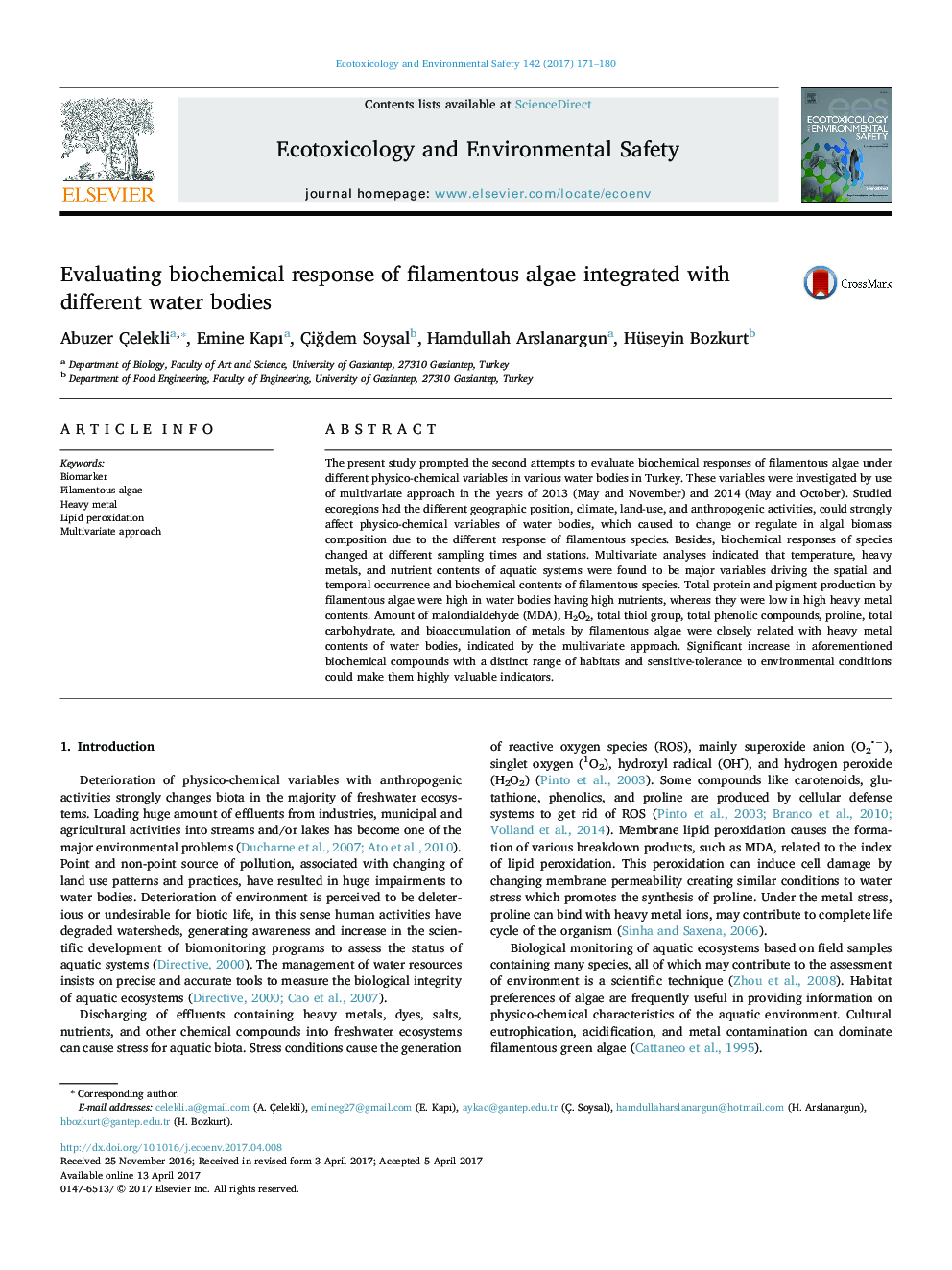| Article ID | Journal | Published Year | Pages | File Type |
|---|---|---|---|---|
| 5747604 | Ecotoxicology and Environmental Safety | 2017 | 10 Pages |
â¢Biochemical responses of filamentous algae in various water bodies were investigated.â¢Heavy metals, nutrients, and temperature were found be the most important variables.â¢Filamentous species had different ecological preferences in various ecosystems.â¢Biochemical response of filamentous algae could to be used as natural biomarkers.
The present study prompted the second attempts to evaluate biochemical responses of filamentous algae under different physico-chemical variables in various water bodies in Turkey. These variables were investigated by use of multivariate approach in the years of 2013 (May and November) and 2014 (May and October). Studied ecoregions had the different geographic position, climate, land-use, and anthropogenic activities, could strongly affect physico-chemical variables of water bodies, which caused to change or regulate in algal biomass composition due to the different response of filamentous species. Besides, biochemical responses of species changed at different sampling times and stations. Multivariate analyses indicated that temperature, heavy metals, and nutrient contents of aquatic systems were found to be major variables driving the spatial and temporal occurrence and biochemical contents of filamentous species. Total protein and pigment production by filamentous algae were high in water bodies having high nutrients, whereas they were low in high heavy metal contents. Amount of malondialdehyde (MDA), H2O2, total thiol group, total phenolic compounds, proline, total carbohydrate, and bioaccumulation of metals by filamentous algae were closely related with heavy metal contents of water bodies, indicated by the multivariate approach. Significant increase in aforementioned biochemical compounds with a distinct range of habitats and sensitive-tolerance to environmental conditions could make them highly valuable indicators.
